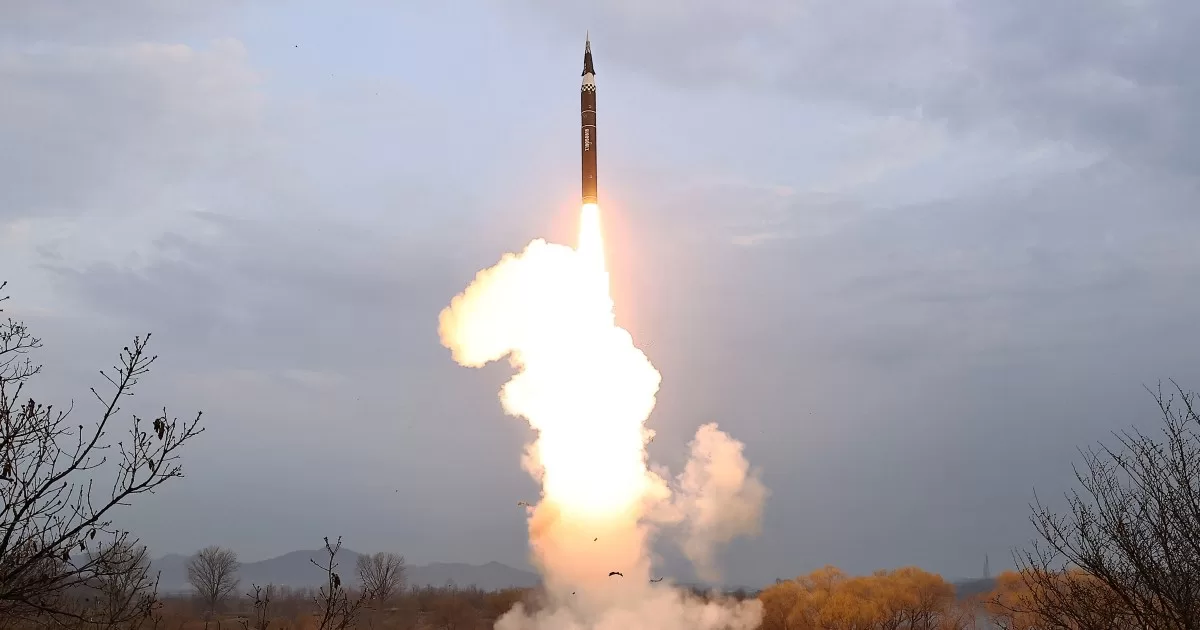BREAKINGBREAKING,
North Korea is believed to have test-fired an intercontinental ballistic missile towards the sea, South Korea reports.
North Korea has launched a suspected intercontinental ballistic missile (ICBM) towards waters off its eastern coast, South Korea’s military said.
South Korea’s Joint Chiefs of Staff (JCS) said in a statement that the missile launch towards the East Sea, which is also known as the Sea of Japan, was detected at around 07:10am local time (22:10 GMT).
“North Korea’s ballistic missile appears to be an ICBM fired on a lofted trajectory,” the JCS said in a text message, the country’s Yonhap news agency reports.
North Korea’s launch of longer-range missiles in “lofted trajectory” means firing the missile almost vertically. This allows a missile to travel to a very high altitude but then land a short horizontal distance from the launch site.
Such launches are said to enable Pyongyang to gather data sent back from missile tests to better understand the challenges faced when a long-range warhead re-enters the Earth’s atmosphere.
North Korea has not test-launched ballistic missiles since September this year and has not launched an ICBM since December 2023, South Korea’s Yonhap news agency reports.
The latest reported missile launch comes a day after South Korea’s military intelligence agency told lawmakers that North Korea has likely completed preparations for its seventh nuclear test and was close to test-firing a long-range missile capable of reaching the United States.
The launch also comes amid concerns about North Korea’s reported troop dispatch to Russia to support its war against Ukraine.
Speaking at a news conference in Washington with South Korean Defence Minister Kim Yong-hyun on Wednesday, US Defense Secretary Lloyd Austin said North Korean troops wearing Russian uniforms and carrying Russian equipment are moving towards Ukraine, in what he called a dangerous and destabilising development.
South Korea reports that North Korea has sent more than 11,000 troops to Russia and that more than 3,000 of them have been moved close to fighting in Western Russia.
